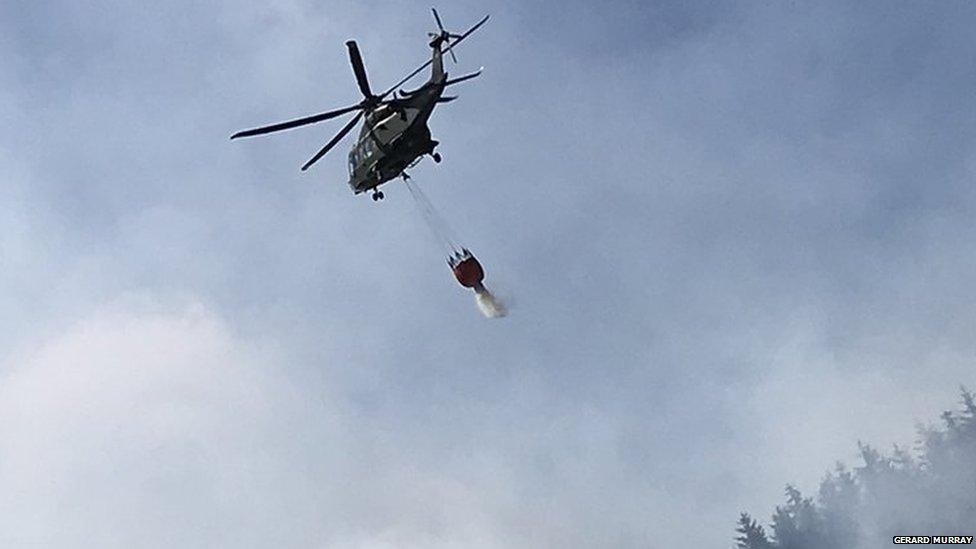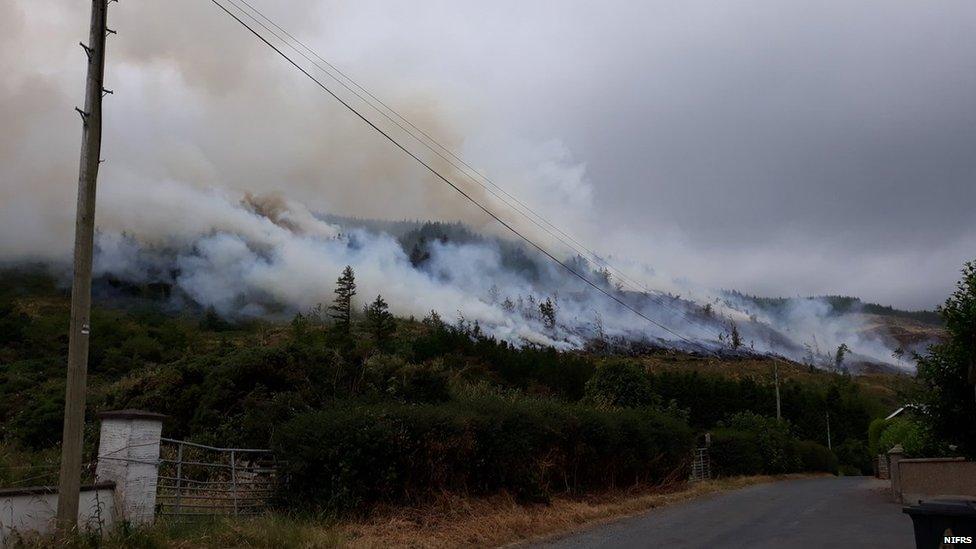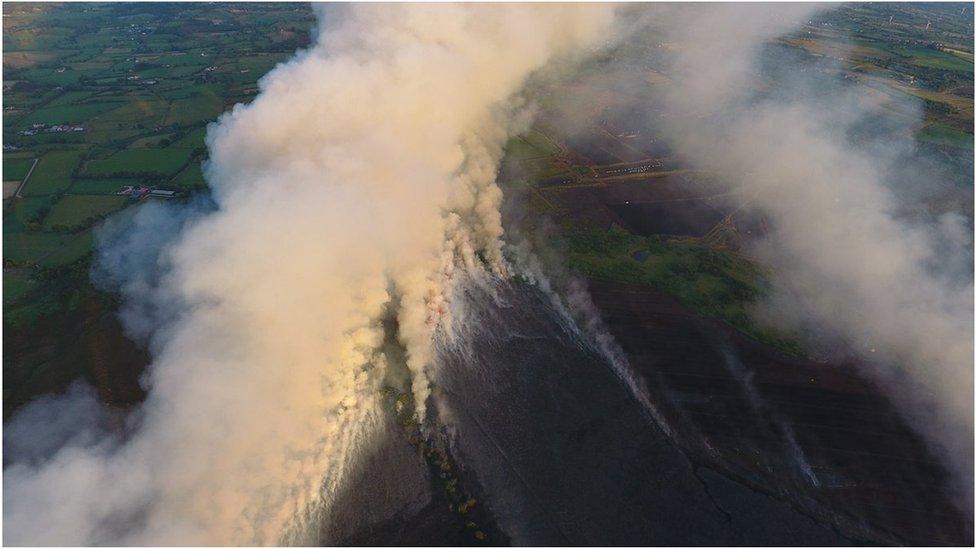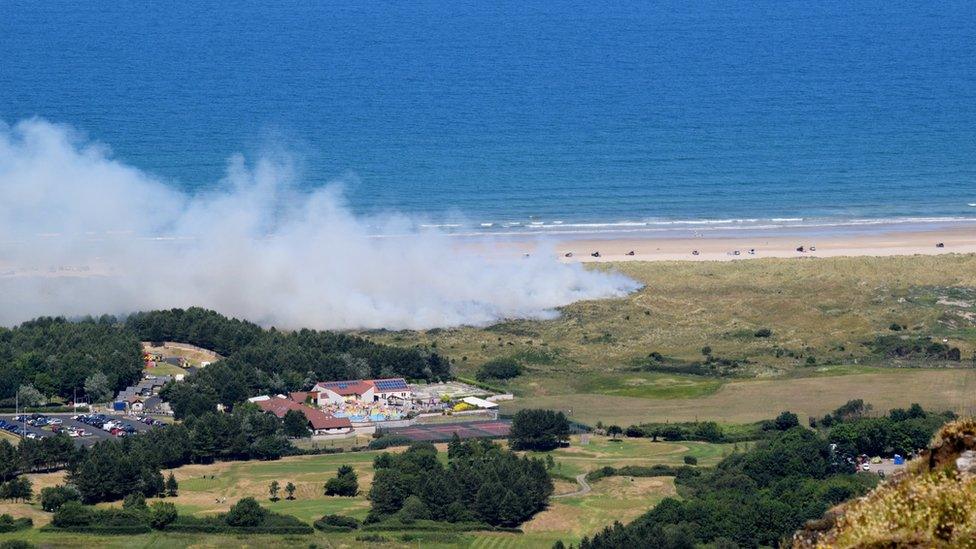Irish Air Corps called to gorse fire on Slieve Gullion
- Published

Irish Air Corps helicopters are at the scene in County Armagh
The Irish Air Corps has been called to help deal with a gorse fire in County Armagh.
It follows a request from the Northern Ireland Fire and Rescue Service (NIFRS) to attend the incident at Slieve Gullion, two miles across the border.
The gorse fire covers an area of approximately 100 acres and is encroaching upon an area of special scientific interest.
NIFRS said it requested assistance due to the deep-seated nature of the fire.
A fire service spokesperson said two Irish Air Corps helicopters are at the scene.
Allow X content?
This article contains content provided by X. We ask for your permission before anything is loaded, as they may be using cookies and other technologies. You may want to read X’s cookie policy, external and privacy policy, external before accepting. To view this content choose ‘accept and continue’.
"One is involved in aerial fire fighting and one is being used as an observation point."

The gorse fire covers an area of approximately 100 acres
Four fire appliances, specialist wildlife resources and all-terrain vehicles are also at the scene.
A spokesperson for the Irish Defence Forces said they had "deployed an Augusta Westland AW139 and a Eurocoptor EC135 to the area".
The aircraft have been used to support the Irish Fire Service to fight gorse fires in the Republic of Ireland during the past 10 days.
"Augusta Westland AW139 helicopters are equipped with a 'Bambi' bucket aerial firefighting system capable of dropping 1200 litres of water per pass. This amount of water, concentrated in a small areas, makes an immediate impact on wildfires," the spokesperson said.
- Published5 July 2018

- Published4 July 2018
